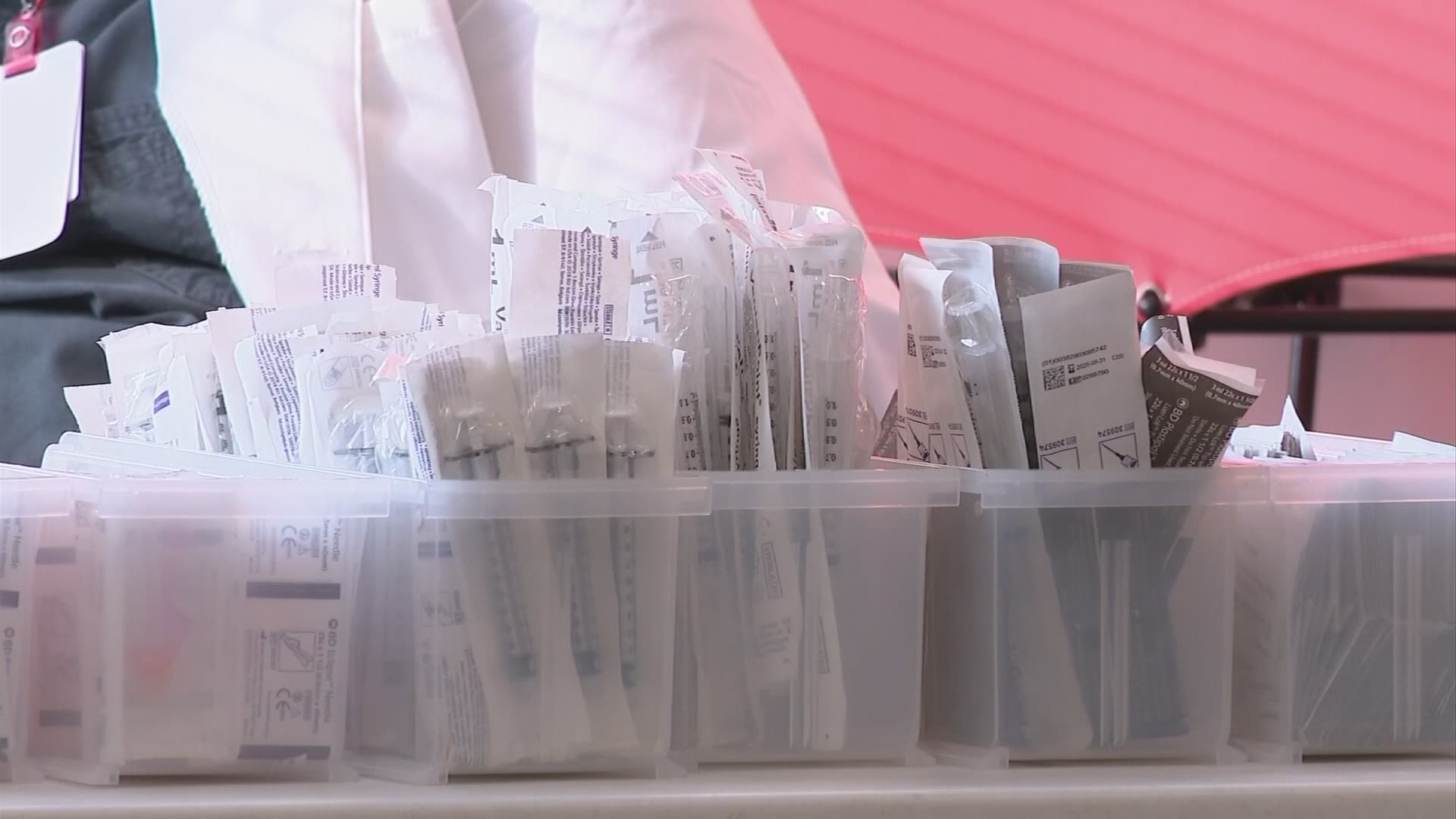Many still have questions about the COVID-19 vaccine specifically about underlying health conditions.
It’s been a year full of worry for Amy Fouts and her 15-year-old daughter Madison.
While being a “warrior,” through it all, Amy said Madison's battling two very serious medical conditions.
“She has juvenile idiopathic arthritis and with that, that’s like rheumatoid arthritis, and her immune system goes overboard and attacks her body,” Amy said.
Madison takes a lot of medicine, gets plasma every other day at home and a big infusion once a month for her autoimmune disease.
Amy said the big infusion suppresses and wipes-out her immune system so it stops attacking her joints.
“So getting sick is a scary thing, she gets the flu usually once a year and ends up hospitalized for it and COVID has been really scary,” Amy said.
For Madison, she said she just focuses on keeping up with the medicine and treatments.
“It’s been a little stressful,” Amy said.
She also has a bleeding disorder, called Von Willebrand Disease.
With the COVID-19 vaccine now being in the picture, and Madison being in the high-risk category, her mom said they’ve been having many discussions about it.
“I want to get the vaccine because I’m the only one who leaves the house and I want to keep her as safe as possible,” Amy said.
However, she questions whether or not Madison should get it.
OhioHealth’s doctor Joseph Gastaldo said the Moderna vaccine isn’t authorized or recommended for anyone under 18 and Pfizer isn’t for anyone under 16.
“How sad and even more scary that my kid can’t get the vaccine if it is going to save her life,” Amy said.
For anyone older, if they have a weakened immune system, Dr. Gastaldo said to weigh the risks and benefits with a healthcare provider.
“We know that people with weakened immune may not mount an immune response to the same level as someone with a normal immune response,” Dr. Gastaldo said.
As for underlying medical conditions, he said the CDC just released new guidelines on that plus weakened immune systems.
“The only true do not receive the vaccine guidance is if you have a severe allergic reaction to any of the components in the vaccine,” Dr. Gastaldo said.
The doctor said everyone’s immune system is different.
“I think for many situations and many patients, there’s more of a benefit of getting a vaccine than the risk of getting COVID-19,” Dr. Gastaldo said.
As far as getting the shot and having immunity, he said it’s usually seen 10 to 14 days after getting the vaccine, that people develop a degree of immunity.
Dr. Gastaldo said most efficacy comes after the second dose.
Another question sent into the 10TV Vaccine Tracking Team is how long the vaccine will last He said science isn’t sure yet and that will be determined in 2021.
“The other common question that comes up is OK my mom and dad are in their 80’s or so and so is 70 and lives at home, what’s their pathway to getting the vaccine,” Dr. Gastaldo said.
He said that it all comes down to guidance by the Ohio Department of Health.
“Keep in mind, the vaccine distribution is all done at the federal level, and then its delegated to the states to determine how they administer or how they distribute the vaccination,” Dr. Gastaldo said.
Right now, through ODH and Governor Mike DeWine, the main priorities for vaccinations for healthcare workers and nursing home patients.
“As those two populations get vaccinated, the next steps going to be in Ohio, what’s the mechanisms for those living at home and first responders to be vaccinated,” Dr. Gastaldo said.
Lastly, the 10TV team received questions regarding if someone has had COVID-19 already, should they get the vaccine.
“Absolutely, the recommendation from the CDC is if you have had COVID, you should still get the vaccination, we do not know yet, after you have COVID how long your immunity will last, again we also don’t even know that too when it comes to the vaccinations,” Dr. Gastaldo said.

